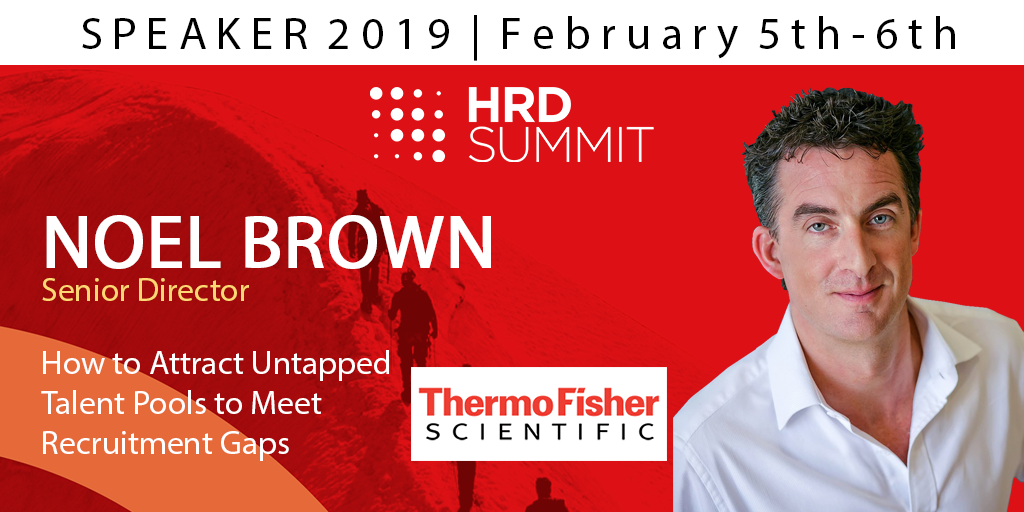Will technology disrupt and transform the face of talent acquisition?
- 4 Min Read
Noel Brown, Senior Director, Global Talent Acquisition at Thermofisher Scientific recently talked to HRD Connect in wake of his upcoming talk at HRD Sumit, he discussed the main challenges in HR as well as discussing the future of technology in the industry.
- Author: Louron Pratt
- Date published: Dec 10, 2018
- Categories

We look forward to welcoming Noel Brown, Senior Director at ThermoFisher Scientific at the HRD Summit UK 5th and 6th February 2019 to speak about attracting untrapped talent pools.
How will global companies overcome the apparent skill shortage that is occurring?
The dilemma we’re facing is the merging of different generations of work, who are now embracing the gig economy differently than thinking about the skillsets that we have and what we need to develop, it’s a combination of all three. That’s the main difference of organisations who are going to be successful.
How would you advise leaders to adapt their recruitment practices?
For us, the big thing is around diversity and gender, but it’s also thinking about industries with the skillset that could be advantageous to us. For example, we have 21 different divisions all doing different pieces of work, if we’re looking for a marketer, then we’re looking for one that has a background in genetics or a speciality in genetic science who goes into that specific sector for marketing, versus someone who is great in marketing without any specialisms, we bring those groups into our organisations and teach them designs. So it’s flexibility around that and how we engage with them differently.
What is your biggest challenge currently?
I lead our recruitment in the United States, we hire 20,000 employees a year, it’s a combination of everywhere in there in the world is at its highest employment levels that they’ve been, and that combined with a very diverse set of hiring leads that we have across the spectrum of science makes it challenges but that makes it
Do you think the ageing workforce needs to be more accounted for and utilised within workforces?
Absolutely, it’s also about those who are being retired and don’t want to be retired, I believe people in the future are going to be working significantly longer in their careers than past generations. We also need to reskill as we’re moving people on, we have a digital transformation process in our organisation like most companies do, and helping our colleagues migrate with us is part of it. Our goal is to give them those skills that we’ve brought with us from university, we’ve got a whole range of interventions in the talent and development perspective that we can bring to the table, so if you’re in the company you can certainly embrace that whether it’s technology or a different part of science. It’s also about where those opportunities are, and how mobile the locations are to those people that are applying for a job.
How much will technology change the face of talent acquisition?
I think technology is changing in HR looking more broadly, we’re leveraging data extensively, so we’re looking at workforce planning, talent signals around planning the data that we’re getting has an impact on how we engage differently. There’s one piece of technology which enables us to automate talent pipelines, and that’s getting smarter and using A.I., which will automatically create pipelines for us, it will start to learn what we need. Technologies such as VR aren’t there yet, they will eventually come, seeing some of the screening, it showed us that it could interview a candidate, and it will screen your body language and filter your responses, but there’s definitely a piece there still for candidate experience. I think until we get to the stage where a candidate comes out of an interview and says “I just got interviewed by a robot and that was a fair process” until we get there, nothing beats face to face interaction. Machine AI learning is great, but it’s not advanced to that level yet where it overtakes that interaction and ultimately a robot or machine doing it themselves, in comparison to a company that is passionate about themselves and their mission, a robot can read it, but you have to talk to someone that can really impart that.









